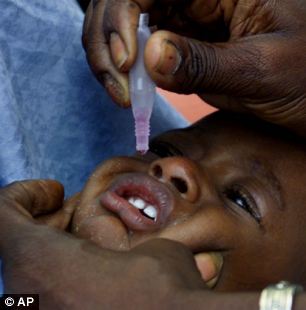Featured
Exploring Nigeria’s Healthcare Sector Under Jonathan’s Watch

By Dia Zamani
As the nation inches towards the 2015 polls to elect a new government, it becomes imperative to take stock of the dividends of this democratic dispensation. One sector that has benefited immensely from the commitment of the President to ensure better life for the citizenry is in the area of healthcare.
“You have tackled it in exemplary fashion”, said Mr. David Navarro, a Special Envoy of the United Nations Secretary-General Ban Ki-Moon in a meeting last August with President Goodluck Jonathan. It was exceptional praise for the country’s devoted fight to combating the Ebola Virus Disease which killed only 8 of the 20 infected cases in Nigeria but left scores of people dead in other less fortunate countries on the West Coast.
As the World Health Organization and the rest of the international community found out in 2014, the Nigerian government’s commitment to health is unmatched by any other since the First Republic in 1960. This is often understated but there is empirical evidence to support this claim.
It proved its dedication to ensuring a better life for all in December 2014 when President Jonathan assented to a major National Health Bill.
This bill includes a Basic Health Care Provision Fund that provides all citizens with access to basic health care. Its major objective is to create a system that allows Nigerians irrespective of gender, ethnicity or social status get quality healthcare for nothing. The fund also caters for the National Health Insurance Scheme, which is targeted at pregnant women, children, disabled people and the elderly as well as vaccinations. Under this law, doctors are obliged to treat victims of emergency situations and this is in itself a crucial accomplishment as the mortality rate from these situations alone is staggering.
Infant mortality rate has always been alarming but thanks to the aptly named ‘Saving One Million Lives’ initiative, the rates have been almost halved from 157 out of 1,000 live births to 94 out of 1,000 live births – an all-time record. It will also continue and tackle malnutrition as it is presently the primary cause of death of 50% of all children born in the country today.
Mothers are not left out too as they are beneficiaries of the Maternal and Child Health Project under the Subsidy Reinvestment and Empowerment Programme (SURE-P), the fiscal programme that is a coffer of accumulated funds from the reduction of petroleum products’ subsidies to improve the living conditions of the citizenry. Accordingly, there has been statistical improvement as figures from the Ministry of Health reveal that since the introduction of the scheme, maternal mortality has dropped from 545 to 350 in every 100,000 births. The decline is steep enough and is expected to continue at the same rate.
In 2014, Nigeria went from 50 polio cases to an impressively low 6 and the country was certified guinea worm-free in the same year. Seeing as this was the same year that the ebola disease was overpowered within the Nigerian borders, it was significant year for stakeholders in the sector and the rest of the masses.
An estimated 1500 healthcare facilities have been rehabilitated and 11,300 medical personnel engaged to improve quality healthcare delivery. An unconfirmed number of new facilities have also been constructed to this end; these include medical laboratories, dispensaries, rehabilitation centres, teaching hospitals, health centres and clinics.
All these are proof of an endearing commitment to fulfilling the United Nations’ Millennium Development Goals (UN-MDGs) agreed at its’ Millennium Summit in 2000 with a target date of 2015 for achievement. The four health-related ones include: improving maternal health, combating diseases, reducing child mortality rates and ending extreme hunger.
The ban on public officials receiving treatment outside the country was greeted with approval by most Nigerians who have looked on with dismay as privileged Nigerians fly out of the country to treat the slightest of worries such as colds and headaches.
Through all the politicking as the general elections draw closer, there will be loads of premium mudslinging and allegations of incompetence will be bandied around. The irrefutable fact is that President Goodluck Jonathan has performed creditably in the health sector. The general voting public will do well to take note – and vote accordingly for continuity.






